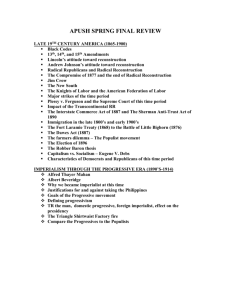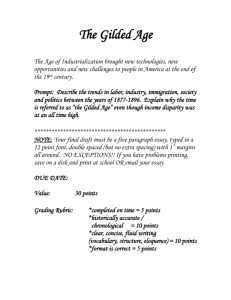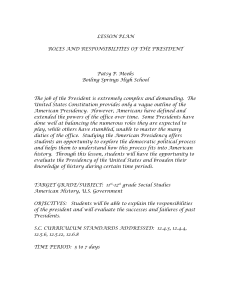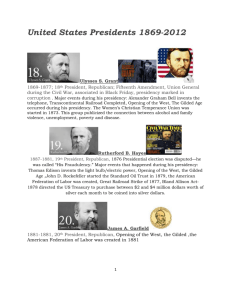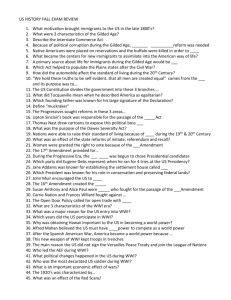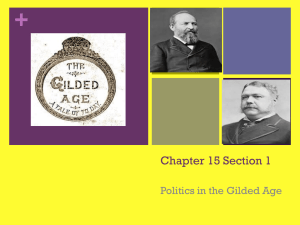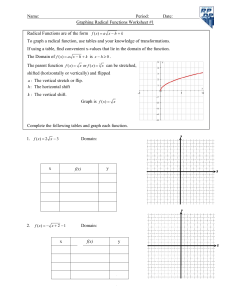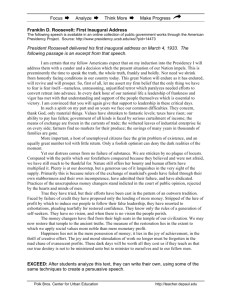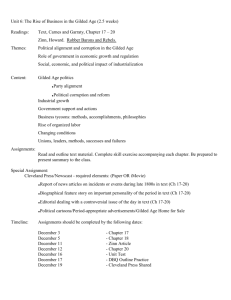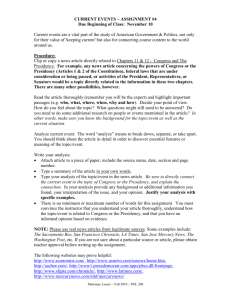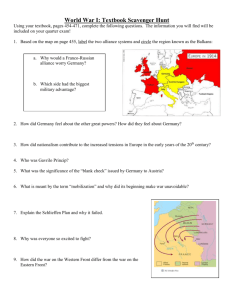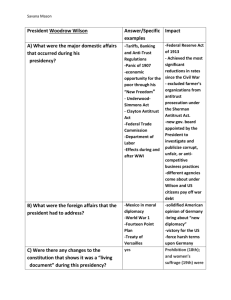APUSH Spring Final Exam Review
advertisement
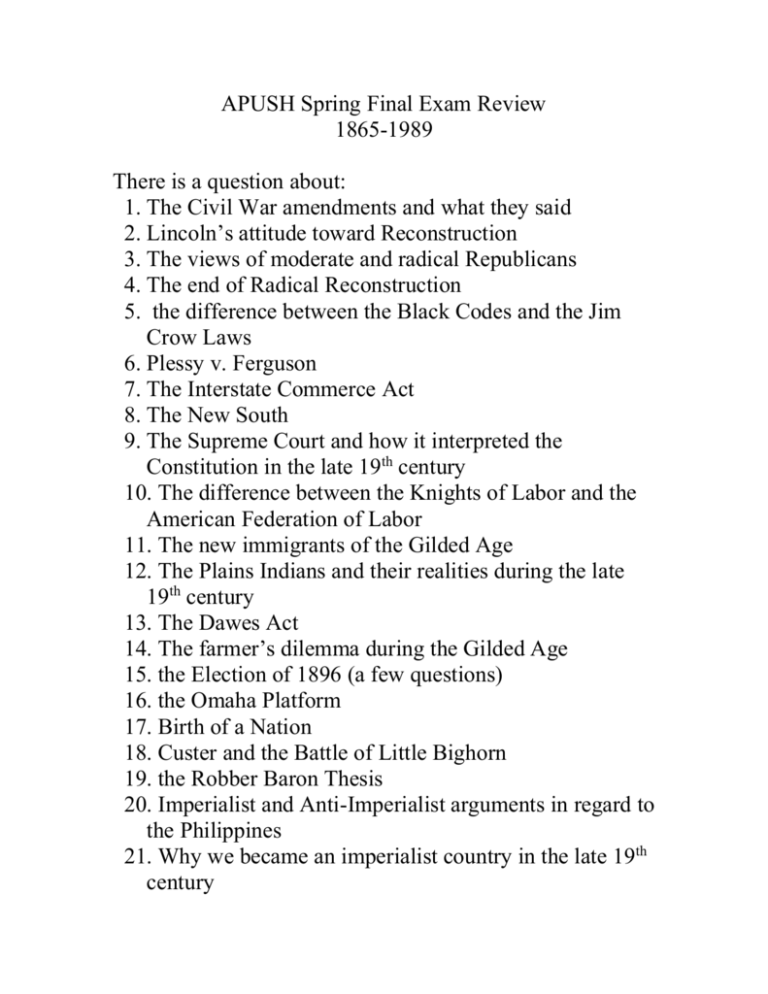
APUSH Spring Final Exam Review 1865-1989 There is a question about: 1. The Civil War amendments and what they said 2. Lincoln’s attitude toward Reconstruction 3. The views of moderate and radical Republicans 4. The end of Radical Reconstruction 5. the difference between the Black Codes and the Jim Crow Laws 6. Plessy v. Ferguson 7. The Interstate Commerce Act 8. The New South 9. The Supreme Court and how it interpreted the Constitution in the late 19th century 10. The difference between the Knights of Labor and the American Federation of Labor 11. The new immigrants of the Gilded Age 12. The Plains Indians and their realities during the late 19th century 13. The Dawes Act 14. The farmer’s dilemma during the Gilded Age 15. the Election of 1896 (a few questions) 16. the Omaha Platform 17. Birth of a Nation 18. Custer and the Battle of Little Bighorn 19. the Robber Baron Thesis 20. Imperialist and Anti-Imperialist arguments in regard to the Philippines 21. Why we became an imperialist country in the late 19th century 22. what progressivism was all about 23. Teddy Roosevelt and his impact on the presidency 24. the rise of socialism and Eugene V. Debs 25. Capitalism and its characteristics vs. Socialism and its characteristics 26. the Triangle Shirtwaist fire 27. the political parties of the Gilded Age, the characteristics that they shared and the characteristics that differentiated them 28. a comparison between the Populists and the Progressives 29. Wilsonian idealism 30. How Americans felt about the beginning of WWI in Europe 31. The Red Summer and Claude McKay’s If We Must Die 32. the 14 Points 33. Civil liberties during WWI 34. The first Great Migration of black Americans 35. Characteristics of the 1920’s 36. the fight over the ratification of the Treaty of Versailles 37. The Red Scare of 1919-20 38. The Klan and the cultural tensions of the 20’s 39. The conservative presidents of the 20’s and the policies they stood for 40. WWI propaganda on the home front 41. Hoover’s approach to the depression 42. The Bonus Army 43. FDR’s first 100 days including his first actions as president 44. The goals of the New Deal in relation to the capitalist system 45. The accomplishments and failures of the New Deal; its legacy 46. Conservative and liberal critiques of the New Deal 47. The first and second New Deal 48. Court packing 49. Dorothea Lange 50. Roosevelt’s steps from 1938-1941 that led the U.S. into WWII 51. Basics about the military course of WWII including our initial military actions 52. the Big Three conferences 53. Traditional vs. Revisionist explanations of Hiroshima and Nagasaki 54. Truman Doctrine 55. Cold War foreign policy – Dems and Republicans 56. Major events of the Truman presidency 57. Why we fought in Korea 58. The roots of our involvement in Vietnam 59. Major early events of the civil rights movement 60. Bay of Pigs and the Cuban Missile Crisis 61. LBJ’s Great Society 62. Civil Rights Act of 1964 63. Voting Rights Act of 1965 64. Gulf of Tonkin incident and the Gulf of Tonkin Resolution 65. Tet 66. Why we fought in Vietnam 67. The major events of 1968 68. Major events of the Carter presidency 69. The span of time we consider to be the radical sixties 70. Brown v. Board and its importance 71. Reagan’s first inaugural address 72. How the Nixon presidency ended 73. five 20th century presidents and the years they served in office
